8 2024 NFL Offseason Decisions That Have Already Backfired
8 2024 NFL Offseason Decisions That Have Already Backfired
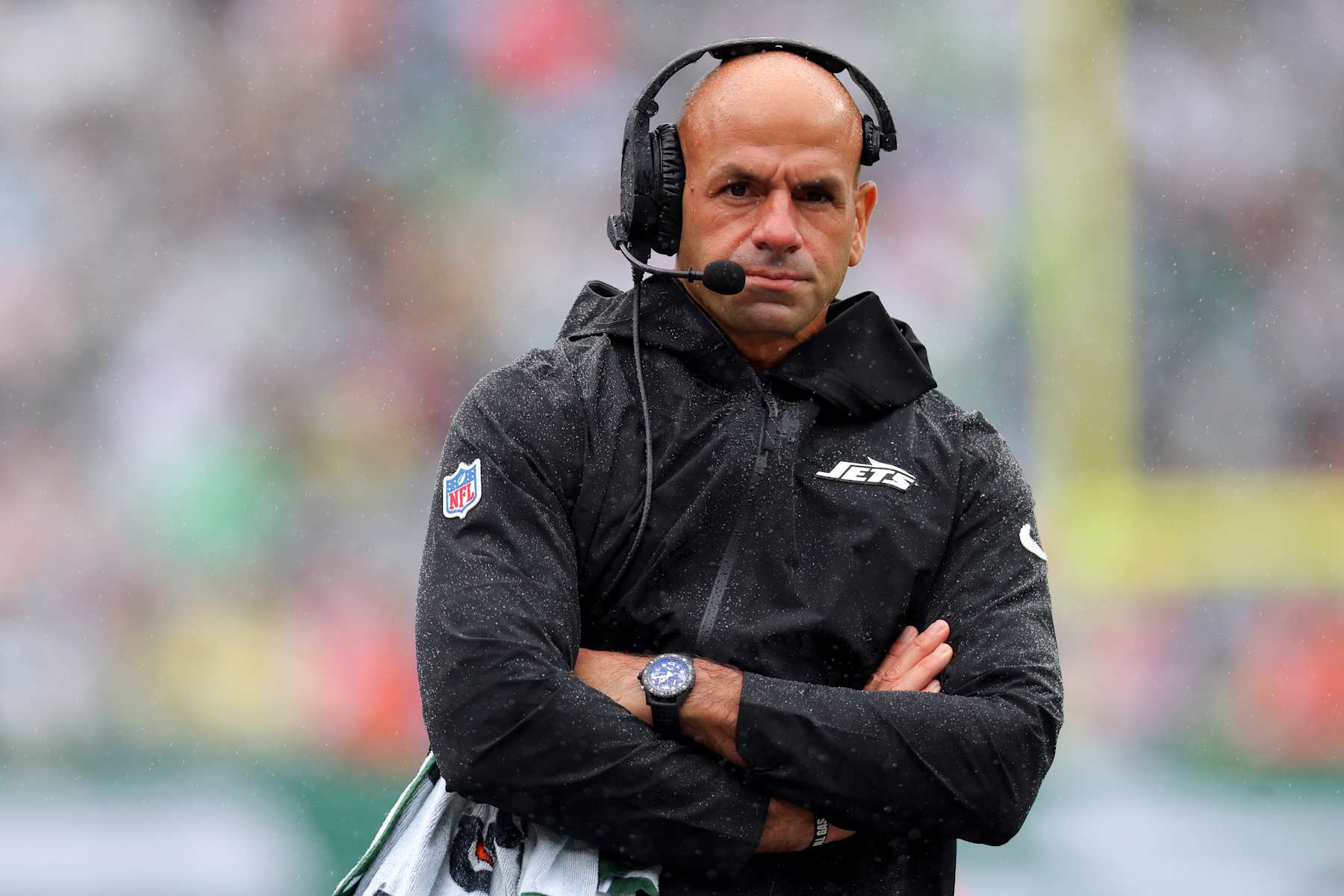
When the New York Jets announced the firing of Robert Saleh on Tuesday, it was clear that the organization was trying to rectify a mistake it made several months early.
The Jets realized that, in retrospect, they shouldn't have stuck by a coach with an 18-33 record.
As is usually the case in the NFL, New York realized its error far too late—though, perhaps early enough to prevent this season from spiraling. Other franchises are in a similar position, and for many of them, the best option doesn't involve firing the head coach and hoping for a boost from the interim.
We're not even through six full weeks of the 2024 season, but the following offseason decisions already seem to have backfired.
Bengals Decide Not to Pay Ja'Marr Chase Early
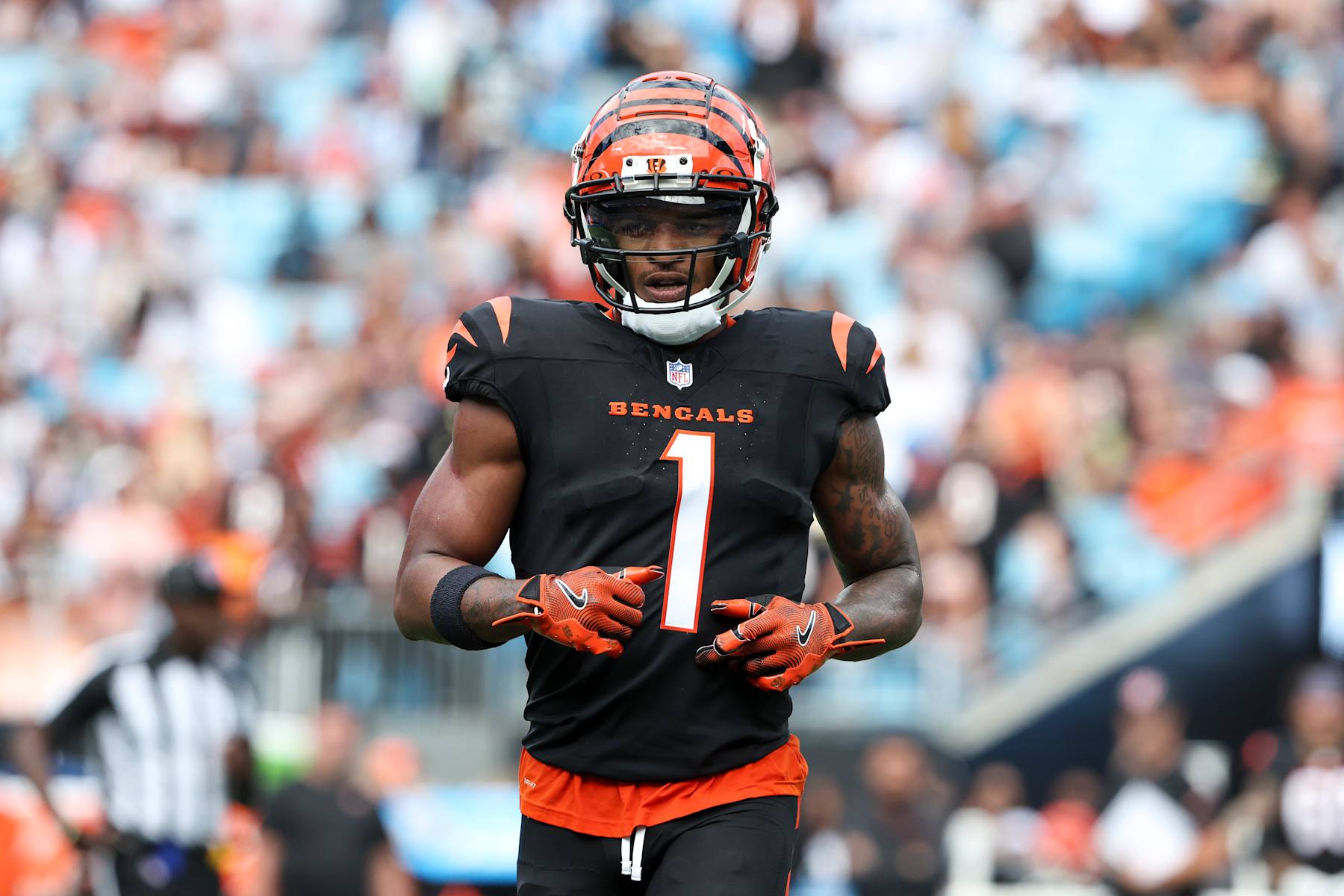
The Cincinnati Bengals' decision not to pay Ja'Marr Chase at the start of the 2024 offseason hasn't really cost the team on the field too much—though it's certainly fair to wonder if the Week 1 loss to the New England Patriots would have happened with Chase in midseason form.
After holding out of training camp workouts, Chase reported for the start of the regular season, and he's already amassed 493 yards and five touchdowns on 29 receptions.
However, Cincinnati's decision has already backfired because Chase's price tag will only continue to go up from here.
Theoretically, the Bengals might have re-signed Chase to a deal similar to A.J. Brown's—which, in April, made him the league's highest-paid receiver with an annual salary of $32 million.
But the Bengals waited and watched Minnesota Vikings receiver Justin Jefferson ink a deal worth $35 million annually. That has become a figure that Chase is eager to beat.
"If I want to beat Justin, I'm going to beat the s--t out of Justin," Chase told reporters on September 6.
While we're unlikely to see another receiver top Jefferson's deal between now and next offseason, we're likely to see Chase gain even more leverage in contract negotiations.
The passing game has been just about the only thing working for the 1-4 Bengals—who rank fifth in passing, 28th in rushing and 31st in points allowed—and aside from Joe Burrow, Chase is the most important piece of it.
Browns Decide to Replace OC Alex Van Pelt with Ken Dorsey
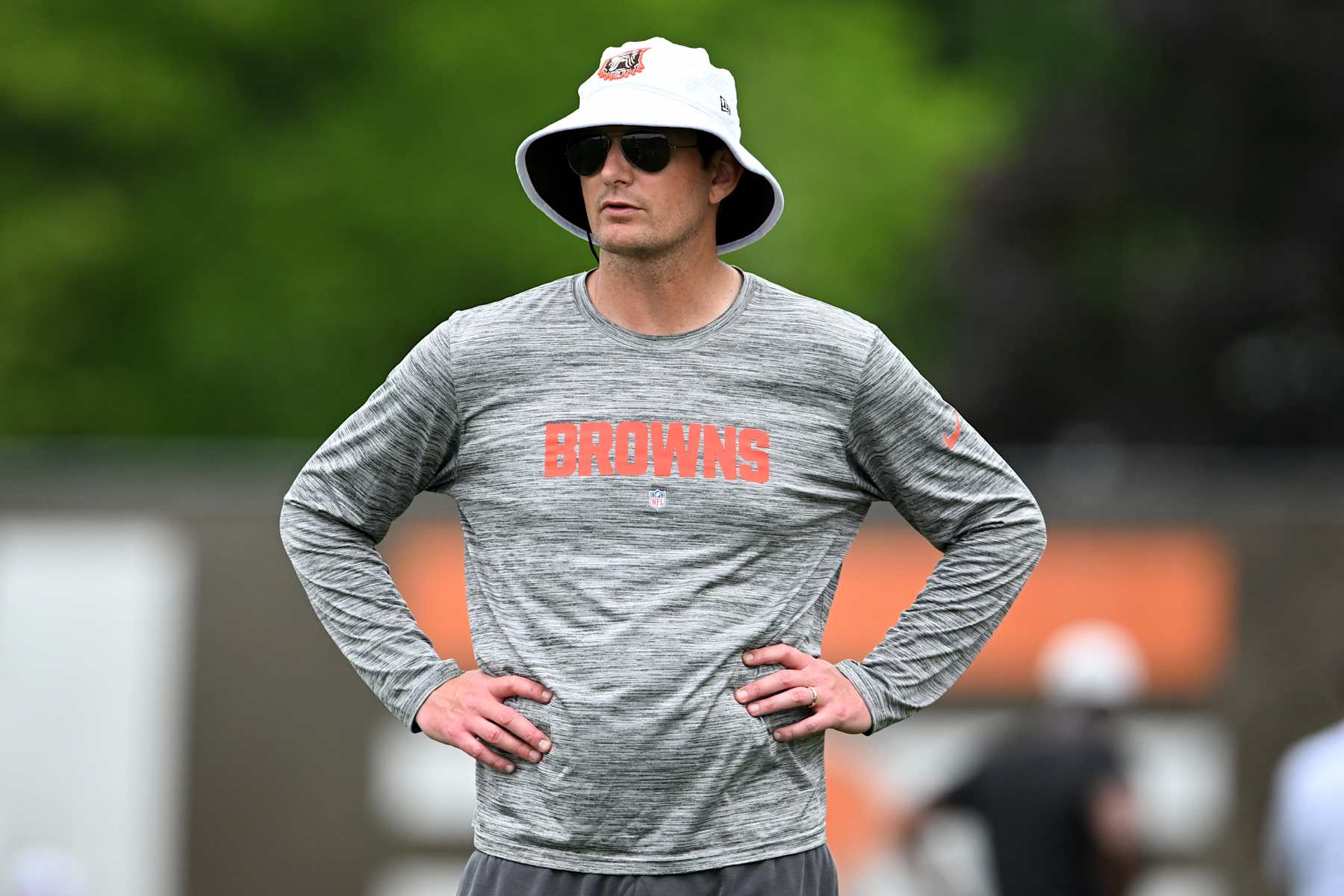
Like the Bengals, the Cleveland Browns sit at 1-4. Unlike Cincinnati, Cleveland can't hang its proverbial hat on a potent offense.
In fact, the Browns might have the worst offense in the entire NFL right now. Cleveland ranks dead-last in net yards per pass attempt, 30th in passing yards, 32nd in total yards and 30th in scoring. Quarterback Deshaun Watson (74.8 passer rating) has played horribly. That's not what decision-makers in Cleveland envisioned when they fired offensive coordinator Alex Van Pelt and replaced him with Ken Dorsey.
"The reason [Van Pelt] was let go in Cleveland was because ownership and [CEO] Paul DePodesta, not Kevin Stefanski, ownership and Paul DePodesta were frustrated with the progress Deshaun Watson had made," Sports Illustrated's Albert Breer told 98.5's Zolak & Bertrand in February.
Granted, Watson hadn't played well often under Van Pelt, but Cleveland's offense—which has its plays called by Stefanski—was at least functional. Watson was 8-4 as a starter under Van Pelt, and he's now 1-4 under Dorsey, and his play has been markedly worse.
And Watson's poor play has only been part of the issue. Trying to marry Stefanski's play-calling with Dorsey's system has yielded an offense that is sloppy, inefficient and lacks identity.
The Browns have yet to score more than 18 points in a game this season.
While there was certainly no guarantee that Watson would show more growth under Van Pelt, the current offense gives Cleveland no shot at returning to the postseason in 2024. In fact, this decision might have slammed the Browns' playoff window shut entirely.
Cowboys Decide That They Can't Afford a High-End Running Back
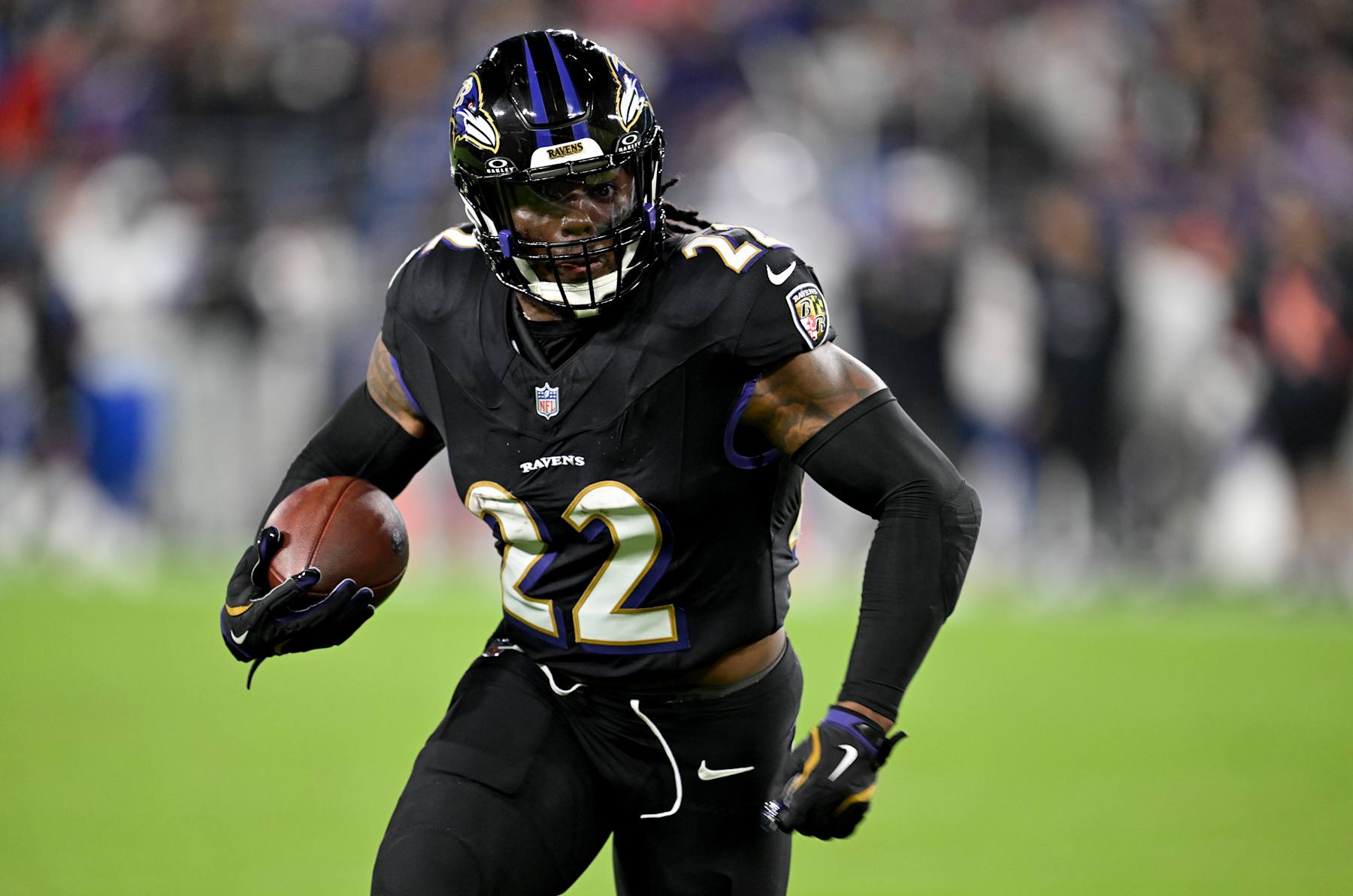
Following the Dallas Cowboys' Week 3 loss to the Baltimore Ravens, Cowboys franchise owner Jerry Jones made it a point to say that his team couldn't have afforded Derrick Henry—who racked up 151 rushing yards in that game—in the offseason.
"Why can't you buy a mansion when you live in a different kind of house?" Jones said, per Pro Football Talk's Charean Williams. "We couldn't afford it. We can't make that all fit. That's as simple as that."
There are two big problems with Jones' statement. For one, it's not true. Henry signed a two-year, $16 million deal with Baltimore, which is big but far from franchise-crippling money. While he signed before Dallas cut new deals with CeeDee Lamb and Dak Prescott, teams regularly find ways to create cap space, sign players and still take care of contract negotiations.
The Cowboys, who now have $23.6 million in available cap space, certainly could have.
Secondly, Henry wasn't the only quality running back available. Dallas allowed Tony Pollard to walk, the Bengals traded Joe Mixon, and running backs like Saquon Barkley, Josh Jacobs, Aaron Jones, Devin Singletary, D'Andre Swift, Zack Moss and Kareem Hunt were all available.
Instead, the Cowboys went ultra-cheap and brought back an aging Ezekiel Elliott. As a result, Dallas currently ranks 31st in yards per carry, 31st in rushing yards and 29th in rushing touchdowns—the team has two, and Prescott scored one of them.
The Cowboys' decision to use a budget backfield isn't working. While the team has a 3-2 record, no one should confuse Dallas with the league's true Super Bowl contenders. This is a team with an underwhelming—and injured—defense, exactly one dependable wide receiver and no semblance of offensive balance.
Would Dallas be a legitimate title contender with an above-average rushing attack? Maybe not, but it would be in a much better position than it currently is.
Raiders Decide That They're Good Enough to Win Now
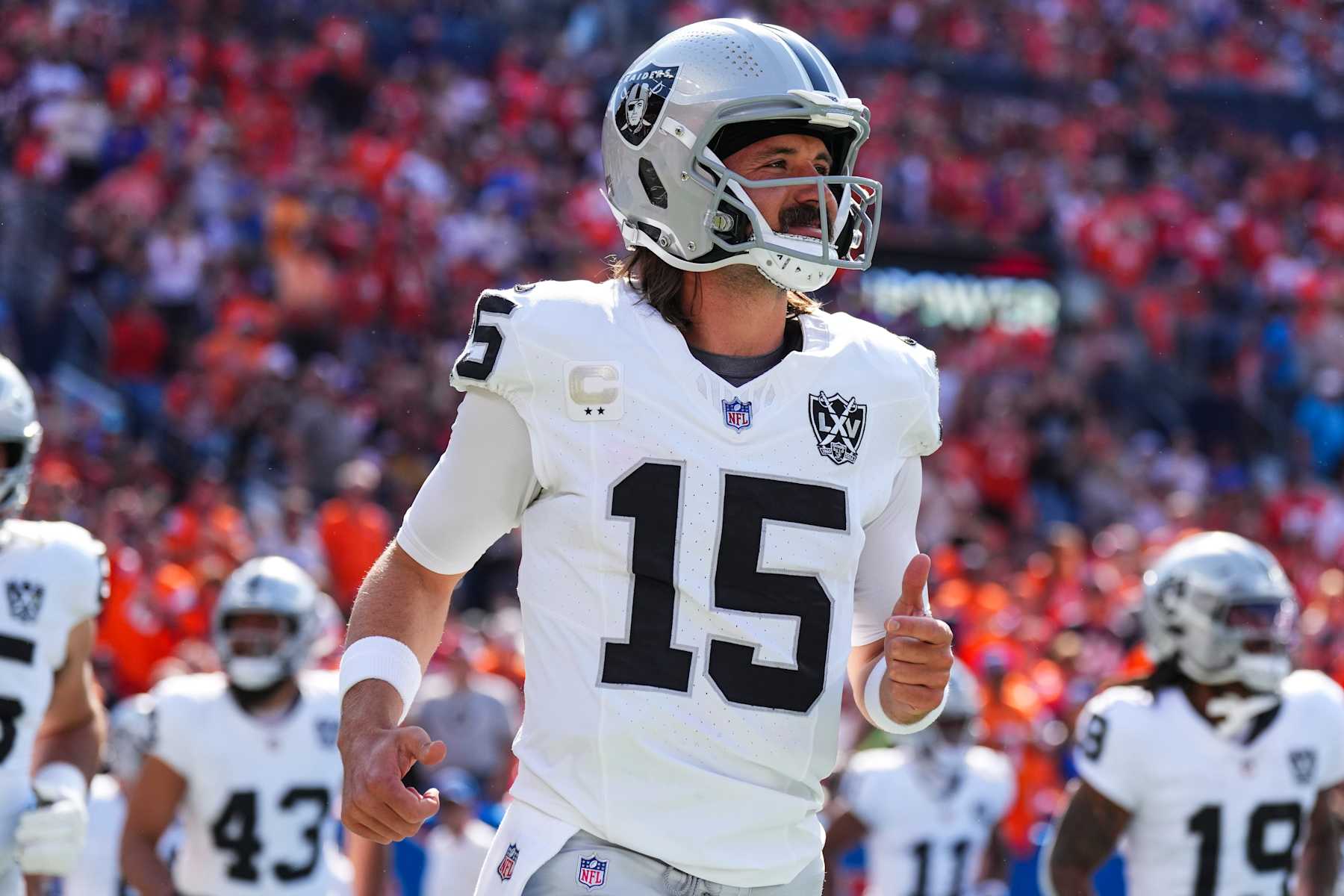
The Las Vegas Raiders decided that their late-2023 surge under then-interim coach Antonio Pierce was a sign that they were ready to contend now. They signed Gardner Minshew II in free agency, hoping that a competition between him and Aidan O'Connell would raise the team's quarterback play enough to be relevant in 2024.
However, Las Vegas' quarterback moves essentially ended there.
According to ESPN's Jeremy Fowler, the Raiders considered moving into the top three spots of April's draft—slots that were used on quarterbacks Caleb Williams, Jayden Daniels and Drake Maye—but they were never going to reach for a quarterback in the draft. When six went before Las Vegas was on the clock at No. 13, the team passed entirely.
"As I sit here right now, that's it ...yeah," general manager Tom Telesco told reporters on the second night of the draft, referencing Minshew and O'Connell as his quarterbacks.
The problem with this plan is that it left Las Vegas without a clear quarterback of the future and, most likely, with no straight path to acquiring one. O'Connell could still be that guy, but if the Raiders believed it, they wouldn't have brought in a mid-level starter like Minshew—and they wouldn't have awarded Minshew the starting job before Week 1.
Now that O'Connell has been reinserted as the starter, Las Vegas is in a very tough spot. At 2-3, the Raiders don't seem to be contenders, and they've already alienated star receiver Davante Adams, who has requested a trade.
The Raiders are rebuilding and are probably just good enough to miss out on one of next year's top QB prospects—which will leave them in the exact same position they were in when they signed Minshew.
Dolphins Decide That They Don't Need a Veteran Backup QB
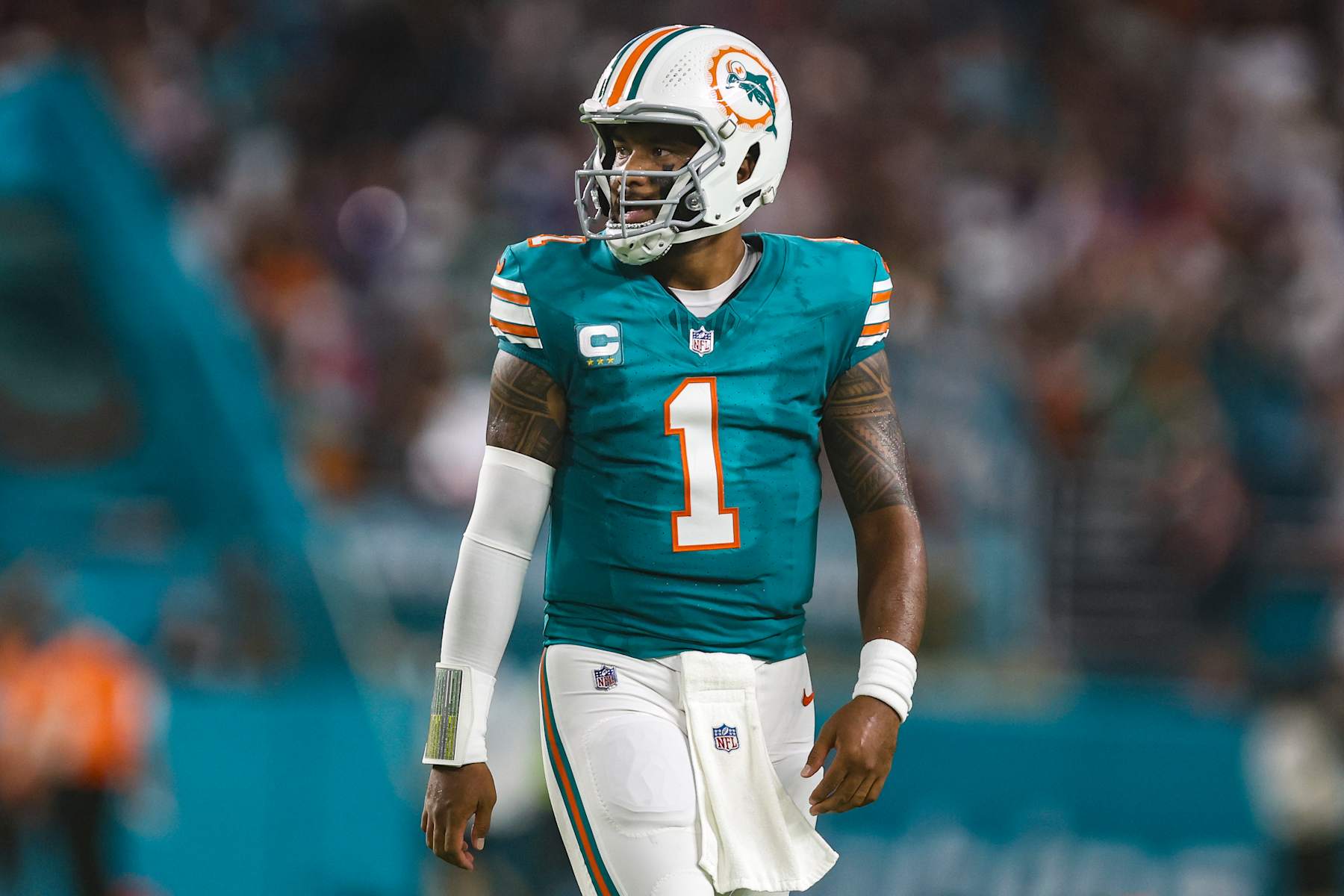
It's far too early to suggest that the Miami Dolphins' decision to give Tua Tagovailoa a four-year, $212.4 million contract extension will backfire. Of course, giving that kind of money to a player with an extension injury history and multiple diagnosed concussions at the NFL level was always risky.
What was even more risky was Miami's decision to go into the 2024 season without a high-end veteran backup behind Tagovailoa. For one, his injury history can't be ignored, even if he did play a full 17-game season in 2023. Secondly, no team with serious playoff aspirations should bank on a single player's health.
When Tagovailoa suffered another concussion in Week 2 and landed on injured reserve, it put Miami in a predicament. The team's quarterback options since then have been Skylar Thompson, Tim Boyle and Tyler Huntley, who was signed off the Ravens' practice squad.
The problem is that head coach Mike McDaniel has crafted his offense to complement Tagovailoa's skill set—specifically, his accuracy, ability to rapidly diagnose a defense and quick release.
In three games without Tagovailoa, the Dolphins have scored three, 12 and 15 points. They did earn a win over the lowly Patriots, but at 2-3, there's a tough road ahead. And there's still no guarantee of when or if Tagovailoa will return this season.
"We don't rush that process and we don't try to do anything that negatively impacts that," McDaniel said, per Josh Alper of ProFootballTalk.
Now, there aren't many quarterbacks who run an offense like Tagovailoa does, but Miami had options in the offseason. It opted for a backup QB battle between Thompson and Mike White—now on the Buffalo Bills' practice squad—a decision that could end the team's playoff hopes by November.
Patriots Decide to Invest Little into the Offense
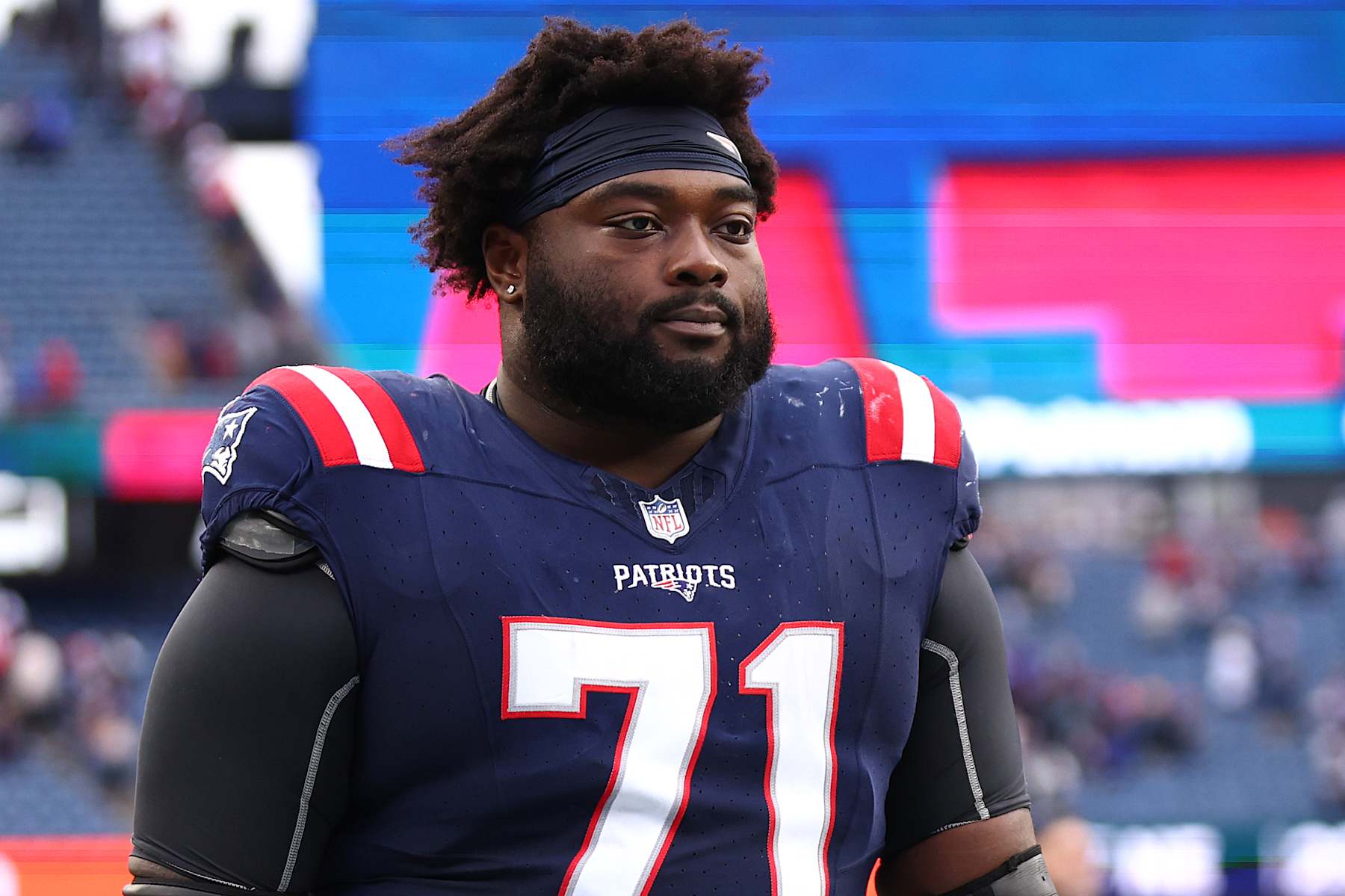
While the New England Patriots may have played coy ahead of the 2024 draft, they knew that there was a good chance that they'd use the third overall pick on a rookie quarterback. That's precisely why their decision to invest little into the offensive line remains baffling.
The Patriots re-signed versatile lineman Mike Onwenu, signed tackle Chukwuma Okorafor and used third- and fourth-round picks on tackle Caedan Wallace and guard Layden Robinson, respectively.
And that's pretty much it. New England allowed Trent Brown to walk and failed to add an experienced free agent like Jonah Jackson, Jermaine Eluemunor or John Simpson.
Wallace, David Andrews and Jake Andrews are on injured reserve, Cole Strange is on the PUP list, Okorafor stepped away from the team, and the results have been disastrous.
New England has surrendered 19 sacks through five games, while journeyman quarterback Jacoby Brissett has been under pressure on 36.9 percent of his dropbacks.
The Patriots didn't do much to upgrade their receiving corps either, aside from signing K.J. Osborn and using a second-round pick on Ja'Lynn Polk. The Patriots rank 31st in net yards per pass attempt, and Brissett can't bear all of the blame.
Now, head coach Jerod Mayo is prepared to hand the offense over to rookie Drake Maye.
"Drake gives us the best chance to win, now and going forward," Mayo said, per ESPN's Mike Reiss.
While Maye might indeed give the Patriots their best chance to win, pairing an inexperienced rookie with one of the worst supporting casts in the NFL probably isn't what Mayo wanted to do in mid-October. Had the Patriots—who still have $36.2 million in cap space, for the record—done more to improve the offense, it's a situation in which New England would not be.
Jets Decide That a Healthy Aaron Rodgers Will Solve All Problems
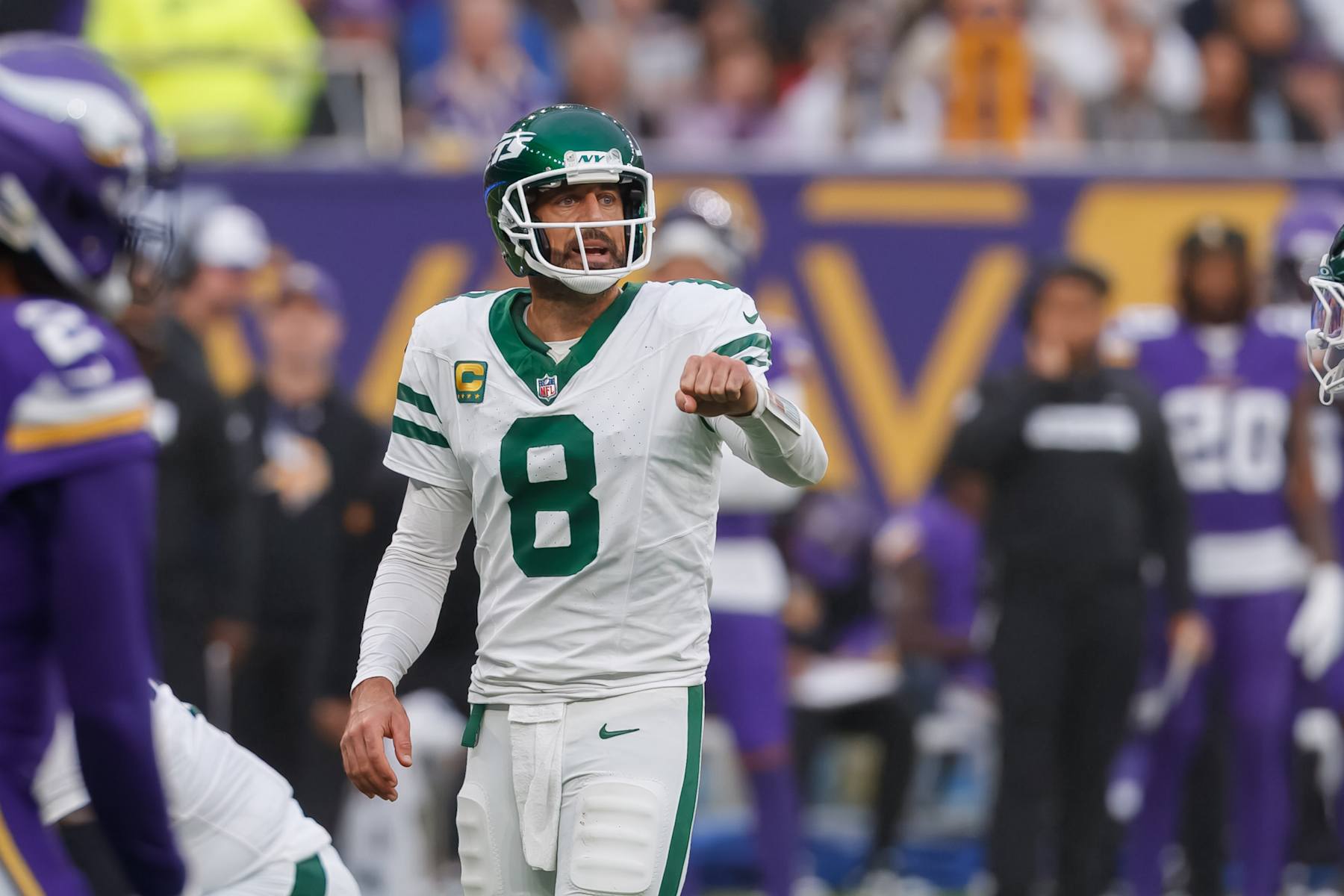
Look, there was some logic in New York's decision to run it back with Saleh and offensive coordinator Nathaniel Hackett. Quarterback Aaron Rodgers was finally healthy, Hackett coached him with the Green Bay Packers, and Saleh had helped craft a defense that ranked third overall in 2023.
However, the Jets made that decision while ignoring that A.) Saleh hadn't delivered more than seven wins in a season and B.) Hackett's offenses in 2022 (with the Denver Broncos) and 2023 were not good.
While it was easy to blame former quarterback Zach Wilson for the team's prior offensive struggles, expecting a 40-year-old Rodgers to suddenly deliver a top-10 offense was always a case of wishful thinking. The Jets did add offensive pieces like tackle Tyron Smith and wide receiver Mike Williams, but from a coaching standpoint, they did practically nothing.
And "nothing" pretty much sums up the improvements we've seen from the offense through five weeks. Last year, New York ranked 31st in net yards per passing attempt, 31st in total offense and 29th in scoring. It currently ranks 27th in net yards per attempt, 27th in total offense and 25th in scoring.
Rodgers may make fewer boneheaded mistakes than Wilson, but the offense has remained static, uncreative and largely ineffective. The numbers are slightly better, but the Jets' 2-3 record in October is the same.
In retrospect, the Jets probably would have been better off making some significant changes during a cycle in which coaches/coordinators like Dan Quinn, Raheem Morris, Mike Vrabel, Mike Macdonald, Kliff Kingsbury and Liam Coen were available.
The good news is that the Jets are making changes now. Interim coach Jeff Ulbrich announced on Thursday that quarterbacks coach Todd Downing would replace Hackett as the offensive play-caller.
"I'm not saying it's a better or worse take on things by any means, but just a different take on things, a fresh approach," Downing said, per ESPN's Rich Cimini.
What's unknown is whether New York's changes are significant enough, and have come soon enough, to really make a difference in 2024.
Eagles Decide to Trade Haason Reddick
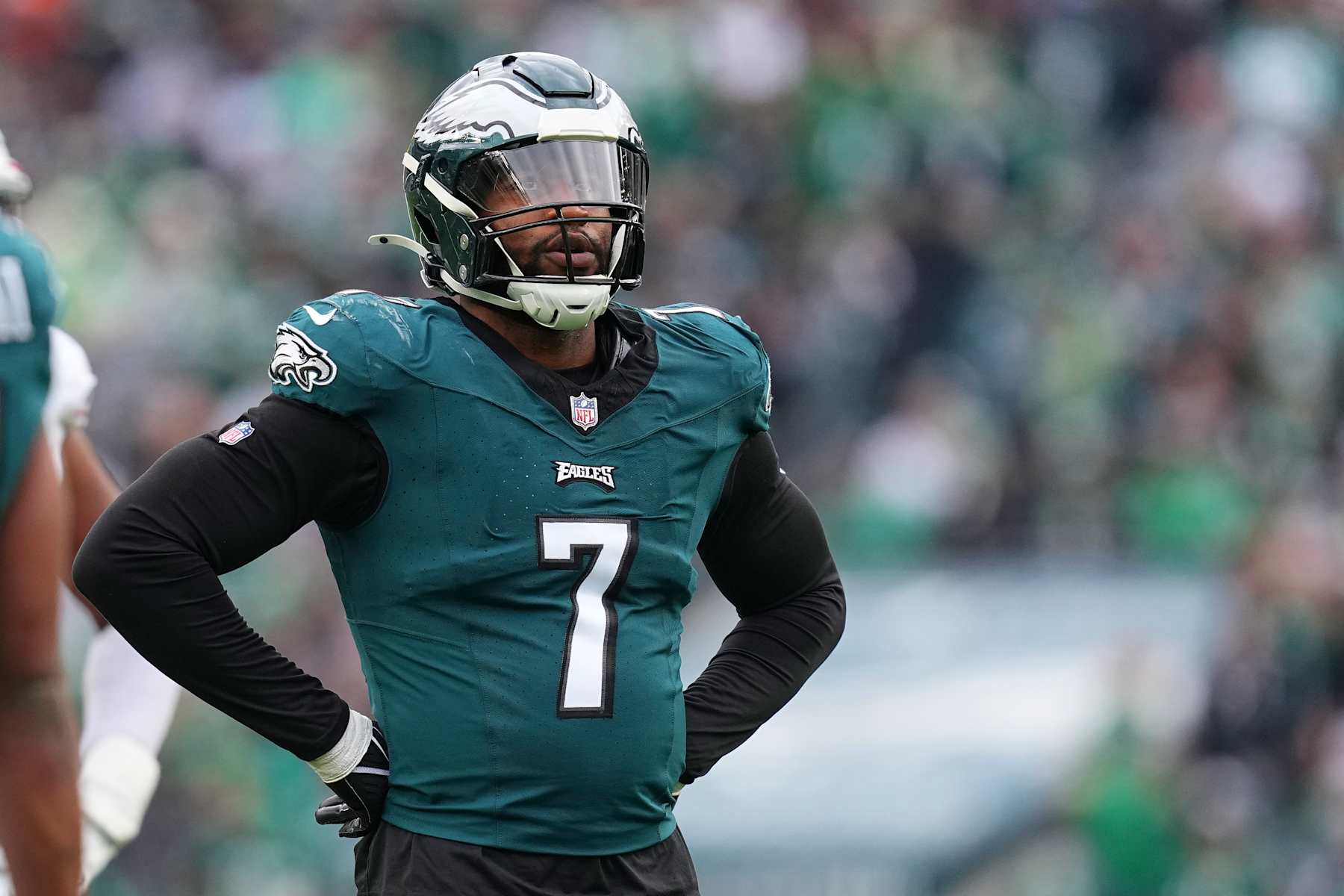
We'll point out that the Jets' decision to trade for Haason Reddick without having a new deal in place was also a bad idea—Reddick wants a new deal and hasn't reported since taking his initial physical.
However, the Philadelphia Eagles' decision to trade Reddick and replace him with free agent Bryce Huff has not paid dividends. Yes, Reddick is 30 years old and entering the final year of his contract, but he also recorded 27 sacks and 76 quarterback pressures for the Eagles over the last two seasons.
Through four games, Huff has produced no sacks and just a single quarterback pressure.
Unfortunately, bringing back Reddick isn't an option because of league rules regarding trades.
To be fair, Howie Roseman's offseason overhaul of the defense, in general, has underwhelmed thus far. The 2-2 Eagles rank 28th in yards per carry allowed, 25th in net yards per pass attempt allowed and 27th in total yards allowed.
However, Philly's lack of a quality pass rush has played a big role in the team's ongoing defensive struggles—and Reddick is sorely missed. He was a catalyst for an Eagles pass rush that tallied 70 sacks in 2022—a year in which the team ranked second in total defense and reached the Super Bowl.
So far the Eagles have recorded only six sacks as a team, and they've lost at least one game (Week 2 against the Atlanta Falcons) because they couldn't get after the opposing quarterback when it mattered most.
*Cap and contract information via Spotrac. Advanced statistics from Pro Football Reference.
